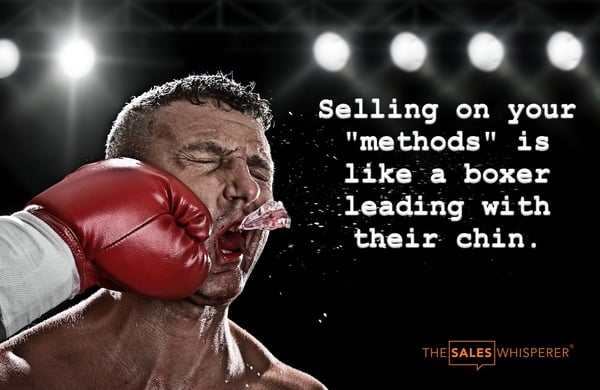My Blog Had a Bigger Audience Than PR Week: The Rest of the Story
For decades in the latter half of the 20th century, the velvety voice of Paul Harvey entertained...

The Wizard of Oz is generally considered one of the most magical movies of all time, filling audiences with childlike wonder for more than 80 years.
But it also communicates something else: how easy it is to deceive people when they want to trust you.
Look at this "wizard;" he's a fraud. He uses deception to frighten and intimidate Dorothy and her friends. He even forces them to perform an incredibly dangerous task -- killing the wicked witch -- without any intention of granting the wishes he has promised them.
And yet, after he is discovered as a liar and a bully hiding behind a curtain, all he has to do is offer the group a few trinkets and all is forgiven.
What is that about?
Many will tell you that the lesson of The Wizard of Oz is to go after your heart's desire despite all the obstacles. But I think another lesson is that people will hold on to what they believe, putting all unpleasant evidence aside, if they think it will get them what they want.
Personalization vs. Privacy: No Contest
That's basically how it works with online personalization -- and the privacy we sacrifice to get it.
We've seen the man behind the curtain. Actually there are many men and women behind the curtain on this issue, but the one who probably comes first to mind is Mark Zuckerberg.

(This is an image I created of Zuckerberg back in 2007; it's been used by hundreds of media outlets over the years, but I rarely get credited for it. Sigh. Well, Gawker credited me once, anyway. In any case, it's more relevant than ever in 2020.)
Mark Zuckerberg has told you who he is. Ten years ago, he declared that privacy was no longer a "social norm;" he still believes it. He has also told you how he makes his money. He makes billions, and has created a $500 billion company, by leading the "surveillance economy."
Zuckerberg's tradeoff with consumers is simple. You give Facebook your privacy, they give you personalized experiences: targeted content, relevant ads, connections with people like you. And they do it for free -- because consumers don't have to buy the product when they are the product.
Yes, our elected leaders gasp and gesticulate as this man tells them what's been so obviously behind the curtain all this time. Yes, we know about Cambridge Analytica now. Yes, there is GDPR now.
No, it doesn't matter. The genie is out of the bottle and Zuckerberg and the other wizards can do as they please -- as long as we get our personalized experiences.
The Only Experiences That Matter Are Personalized
Pearl-clutching aside, the reality is this:
We want personalization and we are OK with giving up our privacy to get it.
We just don't want brands to be too in your face about it. That's really the only time it gets creepy for most people, a la this famous scene from Minority Report:
When we are reminded of the costs of personalization, we momentarily want to walk away -- quit Facebook, quit social media, start using DuckDuckGo instead of Google. But then the wizards give us some trinket-like assurances (opt-out policies and the like) and we let them slide back behind the curtain, no harm done.
The truth -- and the irony -- of modern life online is that you gain more trust by offering personalization than you lose by gathering the data required to offer it.
Consumers today not only want but expect a personalized experience. A full 91 percent of consumers say they are more likely to shop with brands that provide offers and recommendations tailored to them. Buyers have an ever-increasing attraction to brands that listen and respond to their wants and needs.
What’s the Data Telling You?
So, what should a brand do to be trusted? Offer the most personalized experience possible -- while not overemphasizing the methods necessarily to provide that personalization.
That doesn't mean lying. You should be transparent about your methods. But don't make it about your methods.
As an old boss of mine told me once, "You can be honest without leading with your chin." That's how brands must think about personalization today to maintain trust. As Wes Schaeffer, aka The Sales Whisperer, puts it, the "secret behind the magic trick" is not what people really want to know. They want to see the trick itself.

By strategically collecting, analyzing, and implementing the data gathered from your website visitors’ browsing behavior, you can begin to map a seamless journey that guides customers to exactly what they’re looking for. That is the trick your customers want to see.
Study what your visitors have searched for on your site, what pages they visited, how long they stayed, and what links they followed — then use this to predict their future behavior. Provide customers the resources they need, precisely when they need them.
Don’t have enough data to connect the dots? Don’t worry, your customers are generally willing to offer their own data voluntarily to create a more personalized experience.
The Emotional Resonance of Personalization
The primary reason that personalization builds trust is not that it makes a shopping experience easier or more targeted. It's that it creates an emotional connection. A majority of consumers report that being treated as an individual, and not just a potential purchase, resonates with them.
Simple ways to create this feeling with your website's visitors include:
When you create a positive emotional bond with your visitors, they are 15 times more likely to recommend your company, according to a study from Qualtrics.
So, When Does Personal Become Too Personal?
Of course, we've all heard stories of personalized experiences that go too far or are otherwise cringe-worthy:
When you collect visitor information, it's critical that you handle it with care. If you use it in a tone-deaf or invasive way, you will scare off customers. While consumers tend to push privacy questions to the backs of their minds, when confronted with them directly, 71 percent of consumers say they are worried about how brands collect and use their data.
The advice here is simple, if easier said than done: Collect what you need to provide the best visitor experience possible. But don't be creepy about it.

Scott is founder and CEO of Idea Grove, one of the most forward-looking public relations agencies in the United States. Idea Grove focuses on helping technology companies reach media and buyers, with clients ranging from venture-backed startups to Fortune 100 companies.

For decades in the latter half of the 20th century, the velvety voice of Paul Harvey entertained...

Sometimes when I visit a corporate website, I am so disoriented by the stiff language and confusing...
Leave a Comment